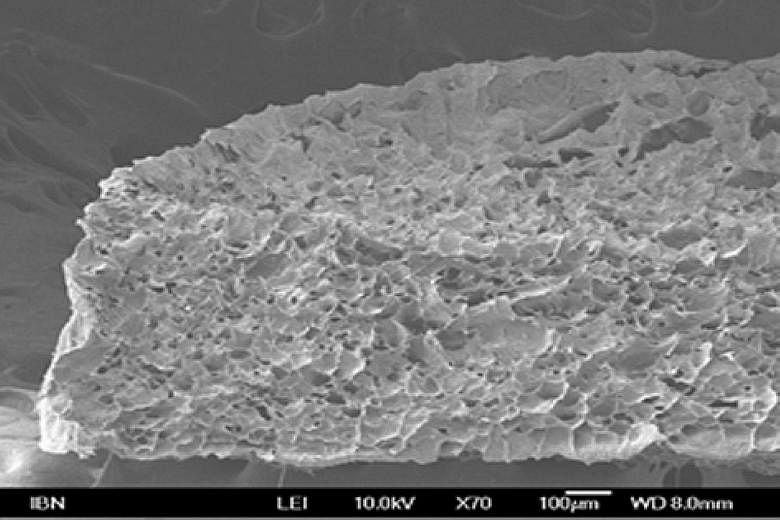The liver is an important organ in drug testing because all drugs pass through it to be detoxified, a process that reduces or removes harmful substances from the body.
In 2013, researchers at A*Star's Institute of Bioengineering and Nanotechnology developed the first artificial human liver for animal-free drug testing, potentially speeding up drug development.
Said the institute's executive director, Professor Jackie Ying: "The ability to determine drug toxicity at an early stage would lead to significant cost savings for pharmaceutical companies and consumers."
By constructing a microscopic 3D scaffold to cultivate liver cells in a favourable environment, the team managed to make the cells behave very similarly to those in a real liver.
The project was spun off to a start-up, InvitroCue, which debuted on the Australian Securities Exchange last week, and is expanding into China with a laboratory under construction in Suzhou Industrial Park.
Lin Yangchen

